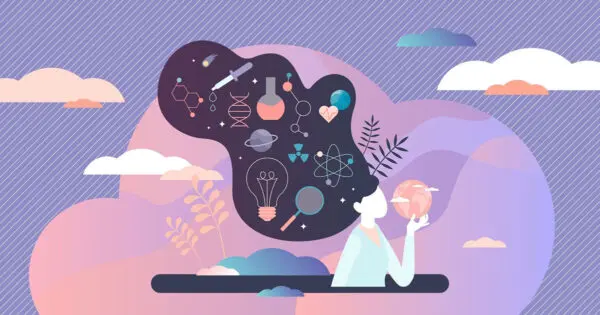Managing Ibogaine Expectations and Misconceptions
Ibogaine is a psychoactive alkaloid derived from the root bark of Tabernanthe iboga. The iboga root bark has been used for centuries in West Africa by the Pygmies and Bwiti in rituals and ceremonies. It is used in the western hemisphere primarily to treat substance use disorder as well as many other psychotherapeutic reasons, but there are many myths, misconceptions, and false expectations about ibogaine that need to be debunked for it to gain mainstream acceptance as a legitimate treatment option. This article will go over some of those misconceptions about ibogaine and how to go about some of the information that might affect you.
Myths About Ibogaine and What it Can Do
Myth 1: People Can Become Addicted to Ibogaine
The ibogaine experience is physically uncomfortable. For most people, it is something they may only do once in their life. It isn’t possible to eat, drink water, walk around, and function on ibogaine, which makes it very difficult — if not impossible, to develop dependencies to. Ibogaine is a profound, long, and challenging psychedelic experience. It is rarely something anyone wants to turn around and do again right away.
For those that microdose, ibogaine accumulates in the system day by day. Without implementing break days, the doses will eventually compound, and unpleasant side effects will occur.
Myth 2: I’ll See Visions and Feel Like A New Person In a Single Day
Ibogaine can last for more than one day, but the visionary experience will not last the entire time. In fact, some people don’t experience visions at all, which can be disappointing if people come into the experience with preconceived expectations of having an all-encompassing visionary experience.
It’s different for everyone, and there is no guarantee that the visionary experience on a flood dose will be what people hope to see. Additionally, some ibogaine experiences are void of visions but are entirely auditory. There is a range of possibilities, and it is best to go into an experience without expectations.
Some people are surprised to learn there is often an extended period of recovery after ibogaine treatment that providers in the industry call the “grey day“. It is incredibly uncomfortable and deeply challenging. Most clients start to feel better once they have slept and come out of the grey day period, but some people have a more subtle process where they slowly begin to feel better day by day.
It is easy for clients to feel like they did something wrong if they don’t have a quick experience. However, it is not uncommon for an experience to take its time to unfold.
Myth 3: Ibogaine is Super Lethal
Ibogaine carries some risks. It prolongs the heart’s QT-interval (the time it takes a heart to recharge between beats), raising the risk of arrhythmia, seizures, syncope, and cardiac arrest. But, it can be used safely in the proper conditions.
Mixing medications and substances with ibogaine is dangerous. Ibogaine can interact with other substances, such as cocaine, methamphetamine, and opioids. Antidepressants can be dangerous because ibogaine also produces serotonin which may elevate the risk of serotonin syndrome, a condition that can occur from too much serotonin being produced that can cause seizures, loss of consciousness, arrhythmia, and other life-threatening symptoms. Additionally, SSRIs and SNRIs inhibit the CYP2D6 liver pathway as ibogaine does, posing more risk due to metabolism issues in the liver.
It was reported in several articles that 1 in 300 people might die from taking ibogaine. But this seems to be a ballpark figure from a randomized sample of 3000+ treatments that occurred in a variety of settings with little information on the circumstances. It’s unknown if any of the people who died were pre-screened for exclusion criteria or medically monitored by ibogaine professionals.
An evaluation of 19 people who died in association with ibogaine over ten years found that most people had pre-existing conditions contraindicated with ibogaine, or mixed substances with ibogaine, or had used improper dosages. All of that to say — the deaths were largely preventable.
So how can I stay safe on ibogaine?
Despite the preventable nature of the deaths on record in association with ibogaine, it’s still important to note that fatalities have occurred on as low as 300mg. People have had adverse reactions on as low as 3mg and 10mg. The key to safety is vigilance and screening.
Anyone who chooses to use ibogaine needs to be thoroughly pre-screened by an ibogaine provider that they have chosen carefully. (INSERT HOW TO CHOOSE A CENTER) They should research the ibogaine provider and the treatment center they are going to, speak to previous clients treated by the provider, and pay attention to any red flags.
It is possible to have a much safer ibogaine experience if precautionary measures are put into place, such as screening and choosing a center that will provide medical oversight. Reputable and safe centers should also have an emergency plan put into place as protocol as well as life-saving, emergency equipment, and medication on-site.
Myths About Opioids and Ibogaine
Myth 4: Ibogaine Stops Withdrawals From All Classes Of Opioids
Ibogaine stops withdrawals from short-acting opiates (SAO) such as heroin, hydromorphone, morphine, and oxycodone. Other semi-synthetic, synthetic, and long-acting opioids that ibogaine providers claim will not combat the withdrawals with a single dose and straight off the opioids like fentanyl, methadone, and Suboxone. Switching over to an SAO for a predetermined amount of time by your ibogaine provider is recommended. Essentially, without getting these opioids out of the system (and some of them anecdotally may take a long time, like Suboxone) before ibogaine treatment, be prepared to possibly experience withdrawal after the experience is over.
But why? Fentanyl is short-acting and Suboxone is supposed to leave the receptors after a couple of days.
Unfortunately, what we know about the neurobiology of opioid withdrawal, and what ibogaine providers have seen anecdotally with treatments over the last ten years, simply doesn’t match up. We don’t know why a considerable amount of people have withdrawals and post-acute withdrawals for three months after getting off Suboxone, but we do know it happens (the author is one of those people).
Highly lipophilic opioids such as Suboxone distribute themselves through adipose tissue as the substance stacks in the system. Some ibogaine providers discuss the possibility that lipophilic opioids may metabolize at different rates in the body. Indeed, some providers have observed some clients successfully detox within a month on an SAO, while others need 60-90 days. However, there is no research to back the narrative up. Methadone is often alleged to store itself in the bone marrow, and there might be some truth to that. One study found methadone in skeletal tissue. However, methadone is also fat-soluble and stores in adipose tissue.
Other providers discuss theories related to the mesolimbic reward system, “conditioned associations,” and the idea that long-acting and synthetic opioids may interact in the brain for a longer time than short-acting opiates. This is slightly supported by the low-dosing protocols that don’t require any switch-over time and over several weeks, wherein individuals ingest much more ibogaine than a flood dose and don’t experience PAWS.
However, the unfortunate truth is that no one knows why it is so hard to treat synthetic opioid users, but we do hope science will explain it at some point. Until then, it’s an ibogaine provider’s job to combat their clients’ withdrawals, and it, unfortunately, can take a long time for a synthetic opioid user to get to ibogaine treatment.
I’m on a synthetic opioid, what do I do?
Due to the influx of fentanyl in America, it may be challenging to find a source of short-acting opiates for prospective clients. However, clients should test their drug supply as it will give important information to relay to their ibogaine provider. Any short-acting opiates bought on the street or dark web should also be tested for fentanyl.
Some centers can stabilize fentanyl users on morphine or oxycodone for the amount of time necessary to avoid PAWS after ibogaine. Talk to ibogaine centers about the options they can provide and what they have seen work for others.
For Suboxone, tramadol, and methadone users, there are anecdotal reports of clients who have successfully tapered onto kratom. This helps bypass the 1-3 months needed on a short-acting opiate without needing to source fentanyl-free heroin, morphine, or oxycodone. An ibogaine treatment center may then be able to stabilize the individual for the amount of time necessary one needs to be away from kratom. Suboxone users could also switch to methadone and then find another SAO for a month before their treatment.
Some Suboxone and methadone users decide to taper completely and use ibogaine for post-acute withdrawals and cravings. There is also the option of a cumulative, repeated, low-structure dosing protocol. It may take several weeks, but it does not require a switch-over time, and with a reputable provider might be the safest option.
The best thing to do is talk to ibogaine providers and ask for advice and references of clients they have successfully treated for synthetic opioids.
Myths About Ibogaine’s Cure-All Abilities
Ibogaine is not a cure for anything. It is an effective assistant and tool for change. It can provide guidance and perspective, but it will not cure anyone for anything. One of the biggest myths is that ibogaine will do the work for the participant. It can open the door and even help with the first steps, but the individual has to work with the medicine to get anywhere.
Myth 5: It Can Cure Any Substance Dependency or Mental Health Disorder
Ibogaine can eradicate most, but not all, opiate withdrawals. Ibogaine also returns the person to a pre-dependent state, as if they had never done opiates. Studies have shown that ibogaine has reduced cravings, alleviated symptoms of depression, and increased well-being.
The same can be said for other habit-forming substances. Ibogaine has been documented to diminish cravings, uplift mood, motivation, reduce impulsivity, and many other therapeutic benefits for stimulants, alcohol, nicotine, and opioids.
However, long-term efficacy is inconsistent in multiple observational studies. Ibogaine can give a head start toward a life without substances and even cut out the painful parts of withdrawal cravings and post-acute withdrawal syndrome. However, individuals still have to learn new skills, coping mechanisms, and work through the revelations that may have come up during their experience.
There is little evidence showing ibogaine can cure mental health disorders, despite anecdotal evidence showing that ibogaine can help. There is some information that ibogaine may be beneficial for PTSD and depression. Still, the results don’t point to a cure, only a way to alleviate symptoms and an overall increase of well-being.
However, substance use is often co-occurring with other diagnoses, so it’s reasonable to assume that some symptoms of other disorders are lifted with ibogaine for some time. New ibogaine analogs are being studied, and one, TBG, has shown promise with some psychiatric conditions and substance use disorders. However, there have been no long-term studies, only studies on rodents.
If it’s not going to fix me, what is the point?
Integration and possibly an aftercare program are the answers for long-term success. Integration begins by taking the most important lessons and revelations from the experience and learning how to apply them to daily life.
The one thing that ibogaine may do that no other medicine-assisted treatment offers is giving people a real chance at claiming autonomy, agency, liberation, and living a new life.
Myth 6: Ibogaine Can Cure Cancer and Diseases
The quick answer is no. Ibogaine doesn’t cure any disease.
The longer answer is that a study looked at 18-MC (an ibogaine analog) and HIV-1 blood cultures and found that ibogaine had antiretroviral properties. There have been anecdotal reports of people with HIV having more stable liver enzymes after ibogaine, but this should be considered as anecdotal as anecdotal gets. There are also many reports of people with hepatitis c either going into remission or seeing better liver enzymes, but this is also anecdotal.
There are scarce but promising anecdotal reports that ibogaine may be a potential treatment for Parkinson’s and reports of people who have found relief for peripheral neuropathy, chronic Lyme, and fibromyalgia. Ibogaine may have the capacity to help some conditions, but we don’t have the research to make any conclusions. It’s essential to make safe decisions with ibogaine over taking risks on a rumor.
Ibogaine doesn’t cure cancer. It’s also important that people who decide to do ibogaine meet the screening process requirements, which can be quite strict.
I have been diagnosed with an auto-immune disorder or another disease, can I do ibogaine?
Maybe. A provider will need to take robust pre-screening measures and go over your medication regimen. For example, it may not be ideal or safe to ask someone to stop their medication and many medications contraindicate ibogaine. It is important to do a lot of research and take time to find the correct treatment center. Find out if a provider has experience with the particular diagnosis and what their experience is.
Some conditions, such as Behcet’s Disease or Chronic Lyme, can be safely worked with if with an experienced provider.
Miscellaneous Myths About Ibogaine
Myth 7: Ibogaine is Like Ayahuasca
Ibogaine and ayahuasca are two very different experiences. It is challenging to describe what ibogaine is like, but ibogaine lasts a lot longer than ayahuasca, carries much more risk, and tends to be an experience that is more focused inward. The surrounding environment is not so important with ibogaine, which is why it is not done in large groups. Some people describe ayahuasca as more outward, more interdimensional, while ibogaine is described as more internal and deeper.
Myth 8: I Can Write Down a List of Questions About the World and Ibogaine Will Answer Them
Some people have found writing down intentions and questions helps them prepare for their experience. Some people keep those questions near them for their session. However, most people can’t read, let alone hold a notebook during their session. It may be beneficial to have nearby for after the ibogaine wears off, but the presence of ibogaine is still acutely affecting the way one perceives ideas and thinks. Don’t expect answers to all of life’s questions though. According to many ibogaine clinics, ibogaine is notorious for not giving people everything they want and only giving them what they need — some providers note that it has “trickster” energy.
Myth 9: I’ll Vomit Profusely Throughout The Session
Some people vomit more than others, and some people don’t vomit at all.
Those that choose to do a traditional iboga root bark ceremony will probably experience a lot of vomiting. To reach a visionary state on root bark, individuals must ingest a large dose, which is taxing, and people do vomit.
However, for ibogaine HCL in particular, providers usually have protocols in place to help reduce the chance of or severity of vomiting. Fasting for 9-12 hours before and taking an anti-nausea medication that is safe with ibogaine are both things that may help. Some anti-nausea medications prolong the QT interval, make sure your ibogaine provider and treatment medical staff administer any medication during your ibogaine treatment.
Myth 8: It’s a Schedule I Substance Because it is Dangerous and Has No Medicinal Value
One of the biggest myths is the reasons for its Schedule I status in America. Hopefully, this article has already debunked this myth. Ibogaine was scheduled due to a War on Drugs built off racism, a Presidential administration scared of psychedelics, and an archaic prohibitionist ideology that has caused harm while overdoses steadily increase.
However, acceptance of plant medicine and psychedelics is growing. MDMA, psilocybin, and ketamine are being accepted by mainstream science as reasonable treatment options. Many cities in America have decriminalized ibogaine and iboga along with other plant medicines. Ibogaine was once a pharmaceutical on the shelves in France in the early to mid-1950s before prohibition. Now, some countries, such as New Zealand, are legalizing it for its medicinal value.
I Still Have Questions, Who Do I Trust?
There are some forums online that promote misinformation. Many Facebook groups allow anyone to post whatever they want; false and unsafe information is often shared as a result. Reddit, however, has a couple of good communities with strict rules on what can and can’t be posted. And, of course, welcome to Psychable. This may be the first of its kind, offering a central hub for vetted psychedelic information. The questions related to ibogaine seemingly never stop arising, making it one of the more interesting alkaloids in the world.








